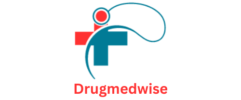With a wide range of anti-depression medications available, it can be challenging to determine which one is right for you. This article provides a comprehensive review of the top 10 anti-depression medications, highlighting their benefits, side effects, and what makes each unique. Whether you’re considering medication for the first time or looking to switch, this guide aims to assist you in making an informed decision.
Table of Contents
ToggleTop 10 Anti-Depression Medications
- Fluoxetine (Prozac)
Fluoxetine is a well-established SSRI that has been used for treating depression and anxiety for many years. It increases serotonin levels in the brain, which helps to improve mood and reduce symptoms of depression. Fluoxetine is often chosen for its effectiveness and relatively mild side effect profile. - Sertraline (Zoloft)
Sertraline is another effective SSRI that is commonly prescribed for major depressive disorder, social anxiety disorder, and PTSD. Its efficacy in treating a variety of conditions makes it a popular choice among healthcare providers. - Escitalopram (Lexapro)
Escitalopram is frequently prescribed for generalized anxiety disorder (GAD) and major depressive disorder. It is known for its high efficacy and lower incidence of side effects compared to other SSRIs, making it a preferred option for many patients. - Citalopram (Celexa)
Citalopram is similar to escitalopram and is used to treat major depressive disorder. It has been shown to be effective in improving mood and is generally well-tolerated by patients. - Venlafaxine (Effexor)
Venlafaxine, an SNRI, is effective for both depression and anxiety. It works by increasing serotonin and norepinephrine levels, which can help with symptoms of social anxiety disorder and panic disorder. It’s a good option for those who do not respond to SSRIs. - Duloxetine (Cymbalta)
Duloxetine is an SNRI used to treat depression and generalized anxiety disorder. It is also effective for chronic pain conditions such as fibromyalgia. Its dual action on serotonin and norepinephrine provides comprehensive relief. - Bupropion (Wellbutrin)
Bupropion is an atypical antidepressant that does not typically cause sexual side effects, making it a suitable option for those who have experienced such issues with other antidepressants. It is also used to aid in smoking cessation. - Amitriptyline
Amitriptyline is a tricyclic antidepressant that has been used for many years to treat depression. It is effective but may cause more side effects than newer medications, which is why it is often prescribed when other treatments have not been successful. - Nortriptyline
Nortriptyline is another tricyclic antidepressant that is used to treat major depressive disorder. It has a somewhat more favorable side effect profile compared to amitriptyline and is often considered when other options have failed. - Paroxetine (Paxil)
Paroxetine is an SSRI that is effective for depression, anxiety disorders, and PTSD. It is known for its effectiveness but may have a higher incidence of side effects, including weight gain and sexual dysfunction.
Factors to Consider When Choosing Medication
Selecting the right medication involves assessing your specific symptoms, medical history, and potential side effects. Your healthcare provider will help you weigh these factors to determine the best medication for your needs.
Side Effects of Anti-Depression Medications
Common side effects of these medications include nausea, weight changes, and sexual dysfunction. It’s important to communicate with your healthcare provider about any side effects you experience so they can adjust your treatment plan as needed.



